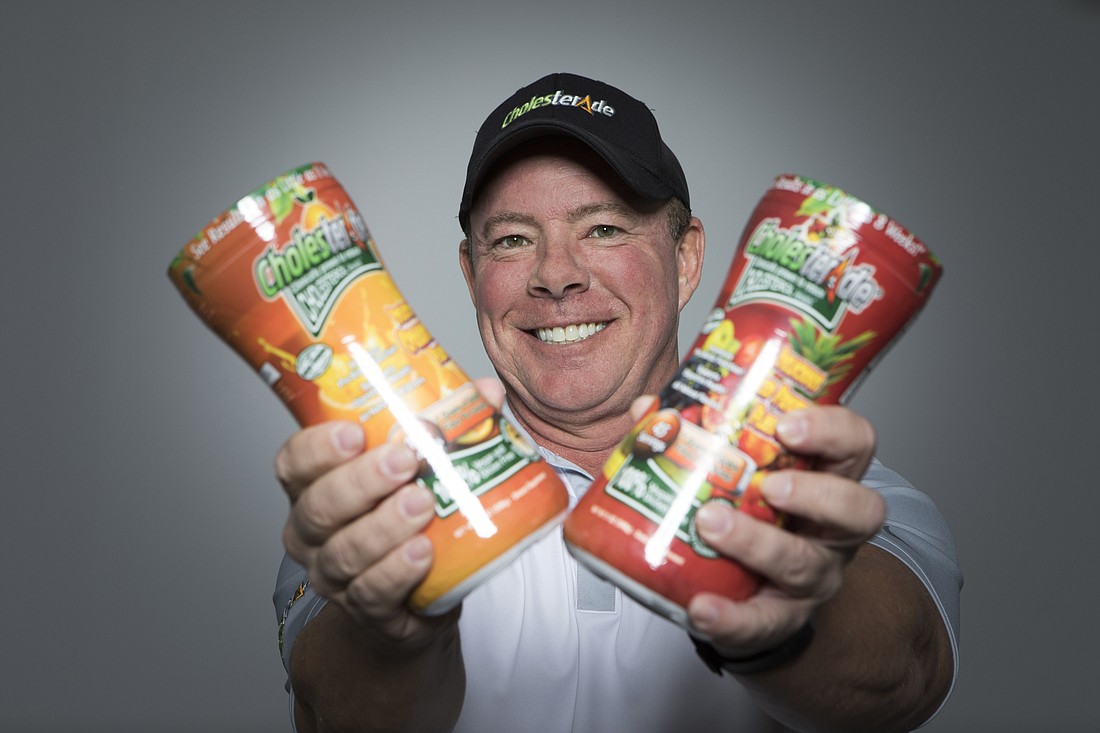- November 23, 2024
-
-
Loading

Loading

An investment banker by trade, seasoned with a healthy dose of humanitarianism, Jim Price has worn many hats throughout his career: Army veteran; co-founder of a venture capital firm in India; creator of an online art distribution portal; founder of an orphanage in war-torn Sierra Leone. The list goes on.
He added entrepreneur to his resume in 2015. That's when he founded St. Petersburg-based Go Epic Health and acquired control of Cholesterade, a health supplement created by the late Dr. Robert Cade, the University of Florida professor who brought Gatorade to the world.
Price, 56, says he “just about fell out of his chair” in 2007 when presented with an opportunity to back the company that previously owned the rights to Cholesterade — a powder, sold over the counter, that claims to lower levels of LDL, also known as “bad” cholesterol, and raise levels of HDL, or “good” cholesterol, after eight weeks of regular use.
“So we raised them a bunch of capital and took them public, but then we had the worst recession of our lifetime,” Price says. “We never got the product to market.”
“The more data we have, the more it’s going to make it so that no one can compete with this product.” Jim Price, founder of Go Epic Health, the St. Petersburg-based company that’s making and selling Cholesterade.
But Price knew the failure was because of terrible timing, not the product. He refused to give up on his idea to bring Cholesterade, which Cade originally invented to treat his own high cholesterol but never mass-produced, to store shelves nationwide. As the economic downturn wore on, he kept in touch with the original owners of the brand, reminding them of his interest and epitomizing the power of perseverance.
“For years, I would say, ‘I’ll quit whatever I’m doing — I want this deal; I want this company,’” Price recalls.
Finally, after nearly a decade, Price relishes that he was able to put the pieces together and "now we’re national.”
Cholesterade has been approved by the U.S. Food & Drug Administration and is carried at some 5,000 retail locations nationwide, mainly by chains such as Albertsons, Safeway, Wegmans and Rite-Aid. With a suggested retail price of $34.95 per bottle, it can also be purchased online at Amazon. Price says it’s coming to the websites for Walmart, Walgreens and CVS.
Noticeably absent from that list of retailers is a certain Lakeland-based grocery chain. “Publix is No. 1 on my list,” Price says, “but Publix is difficult. They want proof. They want to see it being sold in many other places, but once you break that ground, they are in.”
While he continues talks with the Southeast’s dominant grocer, Price — who estimates he’s put $3 million into the Cholesterade venture so far — says he’s happy with the sales momentum gained from the smaller chains and e-commerce sites. In 2018, the product generated about $500,000 in revenue but Price expects that to rise significantly this year, to closer to $10 million based on greater retail availability of the product.
The biggest challenge is raising capital and growing awareness. While the brand speaks for itself — “Ee have the fact that it came originally from Dr. Cade; that does everything for us,” Price says — competing for attention in the cutthroat world of consumer packaged goods can frustrate even the most rock-solid concepts.
That’s why Price, despite having already procured the FDA’s blessing, has commissioned a series of clinical studies, two in Florida and one in Tennessee. The studies are meant to bolster the supplement’s scientific bona fides and its appeal to risk-averse investors.
“The more data we have, the more it’s going to make it so that no one can compete with this product,” Price says. “I want to have it so that you can’t refute anything.”
Price says he hopes the Cholesterade research will be published in respected medical journals, which would aid marketing. “I wanted to really go after the medical community,” he says, “because if your doctor tells you to do something, you’re going to do it … most of the time.”
The end goal, Price says, is a lucrative sale to a multinational food and beverage powerhouse like Nestlé that could manufacture, distribute and market Cholesterade on a global scale.
“Somebody who has billions and billions of dollars could really blow this thing up,” he says, “because it’s not just about making money. We could save lives.”